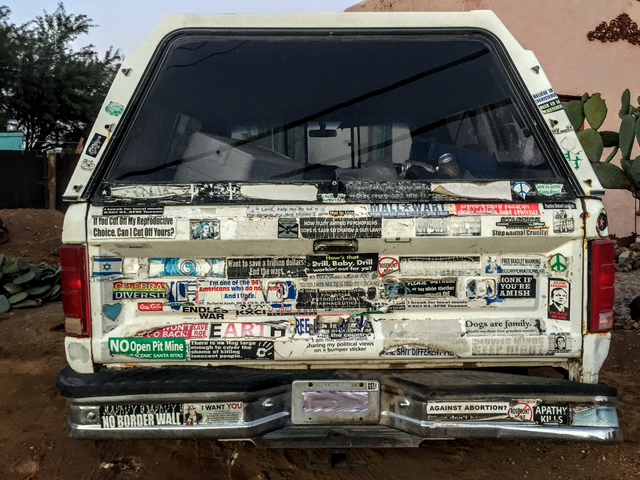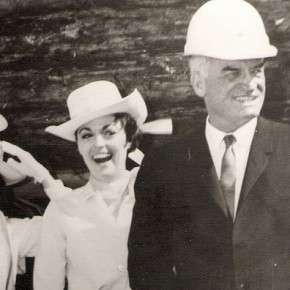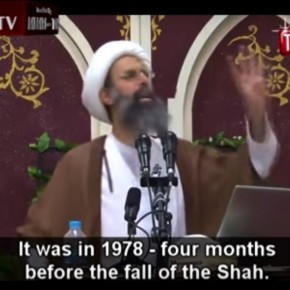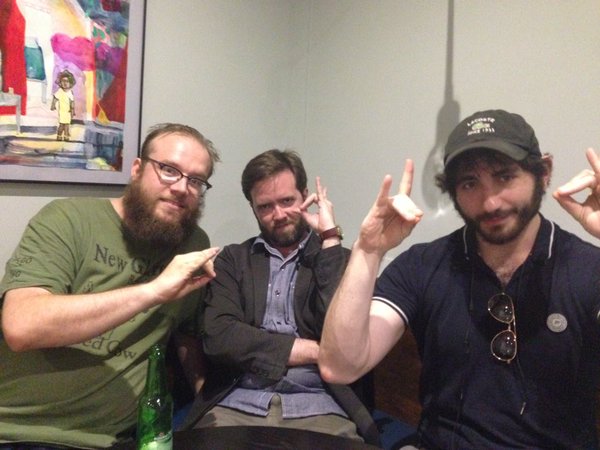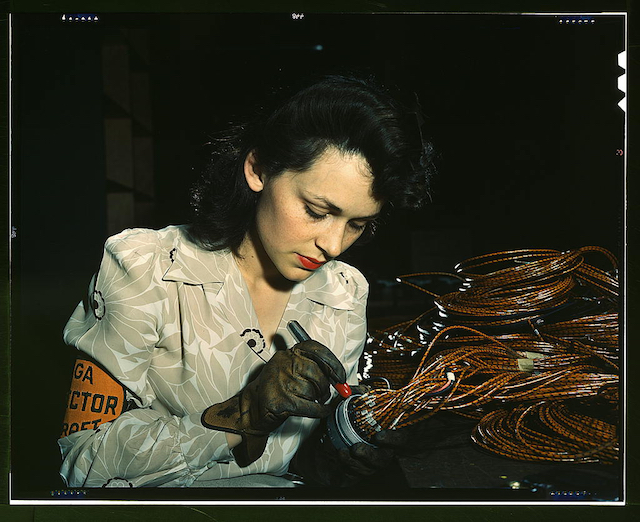The light was fading fast when I spotted the truck out of the corner of my eye. I’d seen some good sets of bumper stickers over the years, but knew that few of them could compare with this one for sheer quantity. Turning my car around, though, I realized that I was in the sort of neighborhood in which strangers taking photographs are asking for trouble.
As I eased to a stop, I could feel myself being watched. Was it worth the risk to document a world-class palimpsest? Deciding it was, I got out of the car and approached the truck. But as I began to take a picture, its owner emerged from the house behind it, dragging a heavy garbage can towards the curb.
She was definitely nearing retirement age, if not already past it, both careworn and distracted. I don’t think she saw me, even when she reached the curb a few feet away from where I was standing. I felt two competing sentiments rise up inside me. Part of me wanted to applaud the courage of her convictions. Tucson may be a liberal bastion within the state of Arizona, but it’s still a far cry from Berkeley. If you promote progressive causes so publicly, conservatives may confront you or even do damage to your vehicle.
But I also couldn’t help feeling sad for her, living in a “transitional” zone where peace and quiet are less common than the sound of police helicopters and looking too long in the wrong direction might lead to dire consequences. This woman was clearly committed to The Struggle, as those of us on the American Left reflexively call it, but also living a life in which day-to-day struggles will sap your energy.
I recalled my years of living in troubled neighborhoods in the San Francisco Bay Area. I was young and resilient then, but still felt the weight of their ambient despair. The drug traffic that made it hard to find peace and quiet. The robberies. The nightly gunfire that periodically resulted in a newspaper or television story. I lived there because I was a student, still looking forward to a safer home in the future. For my older neighbors, though, this was their future.
Many supported the same progressive causes that my college activist friends and I always seemed to be organizing and marching for. They drove beat-up Toyotas, Hondas and Datsuns from the 1970s and sometimes, as if they were thumbing their noses at the stereotype, VW buses and Volvos with odometers that read 200, 300, even 500,000 miles. Yet they also had, what we rather strangely referred to as “lives”, with full-time jobs, mortgages and sometimes children as well.
Back then, I interpreted the decision to live in these neighborhoods as a political move, a way of showing solidarity with disenfranchised populations. Some of these neighbors described it that way, too. In retrospect, though, I realize that this was at least partially the product of a delusion. The main reason they lived there is because the life choices they had made, some of which were political in nature, had consigned them to a financial reality in which these neighborhoods were where they could afford to live.
Plenty of people who identify with the Left — or who are identified as the Left — have money to spare. They are the ones who underwrite progressive causes with donations that also conveniently double as tax deductions. And the Left needs them desperately, because we live in a world where the absence of money imposes constraints that simply can’t be ignored. But those are not the people who are plastering their cars with bumper stickers, the self-proclaimed “foot soldiers” who keep movements alive.
I thought about all this as I waited for the woman to go back inside, wondering if the model of political activism she exemplified was still viable. At a time when it is often difficult to recall what last month’s cause célèbre was, what value is there in being forced to remember a decade’s worth or more? Can the sense of continuity that results from this record be mobilized for something other than I-was-there-man melancholy? Might there be a way of integrating this legacy with our experience of virtual activism, so that they reinforce each other?
